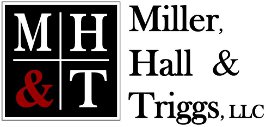HB3793 would eliminate inflationary increases if EAV has declined
By Richard M. Joseph
HB3793 affects taxing districts in counties subject to PTELL (tax caps). Under current law, increases in the extension of real estate taxes levied by a tax capped district are limited to the rate of inflation or 5%, whichever is less. (The extension is the total amount of a real estate tax levy actually billed to the taxpayers).
HB3793 would amend PTELL to provide that if the total EAV of all taxable property in a taxing district for the current levy year (after excluding new property, recovered TIF property and annexed or disconnected property) is less than the total EAV for all taxable property in the district for the previous levy year, then the authorized increase in the extension is 0%.
One might argue that if the assessed value of property is not increasing, then property owners should not pay a higher real estate tax. Unfortunately, even in a mild inflationary economy such as we are now experiencing, the cost of labor, material and services purchased by taxing districts continues to increase. PTELL in its current form recognizes that reality and makes a reasonable accommodation for the effect of inflation. However, if HB3793 becomes law, a decrease in EAV of even $1 would deprive an affected taxing district of the authority to receive a necessary inflation based increase in the extension of its real estate tax levy.
There is some concern that this legislation may be presented during the fall 2011 veto session. If your municipality is subject to PTELL, you may wish to contact your state elected representatives and alert other units of local government within your municipality. The impact of this legislation is much too severe for it to become law without substantial input from affected taxing districts and their constituents.
Posted in Local Government and Public Finance, Richard Joseph